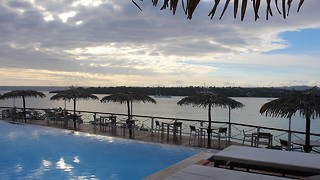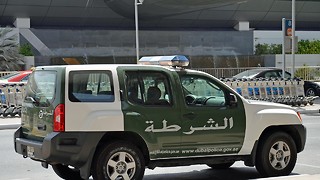A dangerous game: the real reasons for Putin’s stance on Syria
Chloe Clifford-Astbury examines the motives behind Russia’s continued support of government forces in Syria

Russia is playing a complicated game with regard to Syria, and increased influence in the Middle East is not the only aim.
It is in Russia’s interest to maintain its good relationship with Syria, but there are other forces at play. President Putin is using the situation to improve domestic opinion of his government, to silence dissent in restless areas of Russia, and to highlight his country as one of the big players on the international scene.
Russia has long had good relations with Syria. Syria’s location makes it an important ally, and for some time Russia has had a naval resupply facility in the Syrian port of Tartus. Contradictory assertions about the scale and purpose of the facility have been made, with some claiming that it is small, rundown and under-staffed, and others affirming that renovations are under way to transform Tartus into a permanent base that could accommodate Russia’s nuclear-armed warships.
The extent of the port’s strategic importance to Russia remains unclear, but it is certain that Tartus is Russia’s only refuelling spot in the Mediterranean, and allows Russia’s warships to refuel without having to return to their Black Sea bases via Turkey, a NATO member.
Russia is also Syria’s main arms supplier. It supplies the country with modern weapons, including anti-tank and anti-air missile systems. The Russian government’s stated position has been that these transactions are made in the interest of maintaining peace and stability in territories close to Russia’s borders. As of 2011, Syria’s arm contracts with Russia were worth at least $4 billion, making Damascus Moscow’s seventh largest client.
However, by refusing to yield to the pressure to withdraw its support from Assad’s regime, the country is missing out on an opportunity to cement good relationships with powerful friends. Russia’s relationship with the West has long been tense, and yet they are choosing to stand against it on this issue.

At the G20 summit this week, Russia refused to withdraw its veto of any attack on Syria. It has joined China in claiming that any action without a UN resolution would be illegal. Putin has not backed down, despite strong words from Western representatives. Samantha Power, the US envoy to the UN, accused Russia of holding the security council hostage, while David Cameron claimed that the world could not “contract out” its morality to a Russian veto. Although maintaining a good relationship with Assad is useful for Russia, it is not useful enough to explain their persistent and strongly voiced support of his regime.
Russia’s behaviour in the Syrian crisis is about more than expanding its influence in the Middle East. Putin is using the situation to manipulate domestic and international opinion of his government. As political analyst Alexei Vorobyov told the BBC, "It's not a struggle for Syria or Iran, it is a struggle against the West. It sends a simple and clear message to the population - we are strong, we are not afraid of anybody."
Putin is taking a symbolic stand against the West, and in doing so he is showing the world that he has enough strength and independence to stand against America and its allies, he is showing the Russian people that their government is sovereign and will not yield to Western pressure, and he is showing dissenters in restless regions of Russia, Chechnya, for example, that rebellion and revolution will not be tolerated.
Twelve years of disastrous Western intervention in Afghanistan, Iraq and Libya, not to mention Russia’s own complex relationship with the West, give Putin plenty of material with which to create a stirring narrative: he stands strong against the corrupt, indecisive West as they attempt to topple Syria’s leader and replace him with a puppet that will protect their interests.
A perusal of the Russian newspaper Pravda yields comments like “even though the US thinks they are in charge of humanity the reality is they are not,” and “Obama's buffoonery selling the war against Syria has hit a wall thanks to President Putin's firm stance and leadership."
It is telling that the mainstream Russian media contains a number of articles written in this vein, and provides an insight into the logic behind Russia’s behavior. The op-ed piece submitted to the New York Times a few days ago under the name of Vladimir Putin, advocates negotiation with Syria in order to avoid escalation of the conflict, and warns the United States that going against the consensus of the United Nations may even lead to the dissolution of that body. It is a slightly more diplomatic piece of writing, but it has the same basic aim: getting the upper hand on the West, and even taking the moral high ground.
As certainty that an act of chemical warfare took place in Damascus grows within the UN, Russia and the US continue to negotiate the terms on which Syria’s weapons will be disposed of. Though the outcome of these negotiations is uncertain, one thing seems clear: if the Russian president can come out of this situation having presented an image of his government as sovereign, powerful, and free from Western influence, he has in some way 'won' regardless of how the conflict plays out.
 News / Academics lead campaign against Lord Browne Chancellor bid2 July 2025
News / Academics lead campaign against Lord Browne Chancellor bid2 July 2025 News / Lord Mandelson visits University30 June 2025
News / Lord Mandelson visits University30 June 2025 Features / 3am in Cambridge25 June 2025
Features / 3am in Cambridge25 June 2025 News / Clare students call on College to divest3 July 2025
News / Clare students call on College to divest3 July 2025 News / John’s students call on College to divest1 July 2025
News / John’s students call on College to divest1 July 2025








